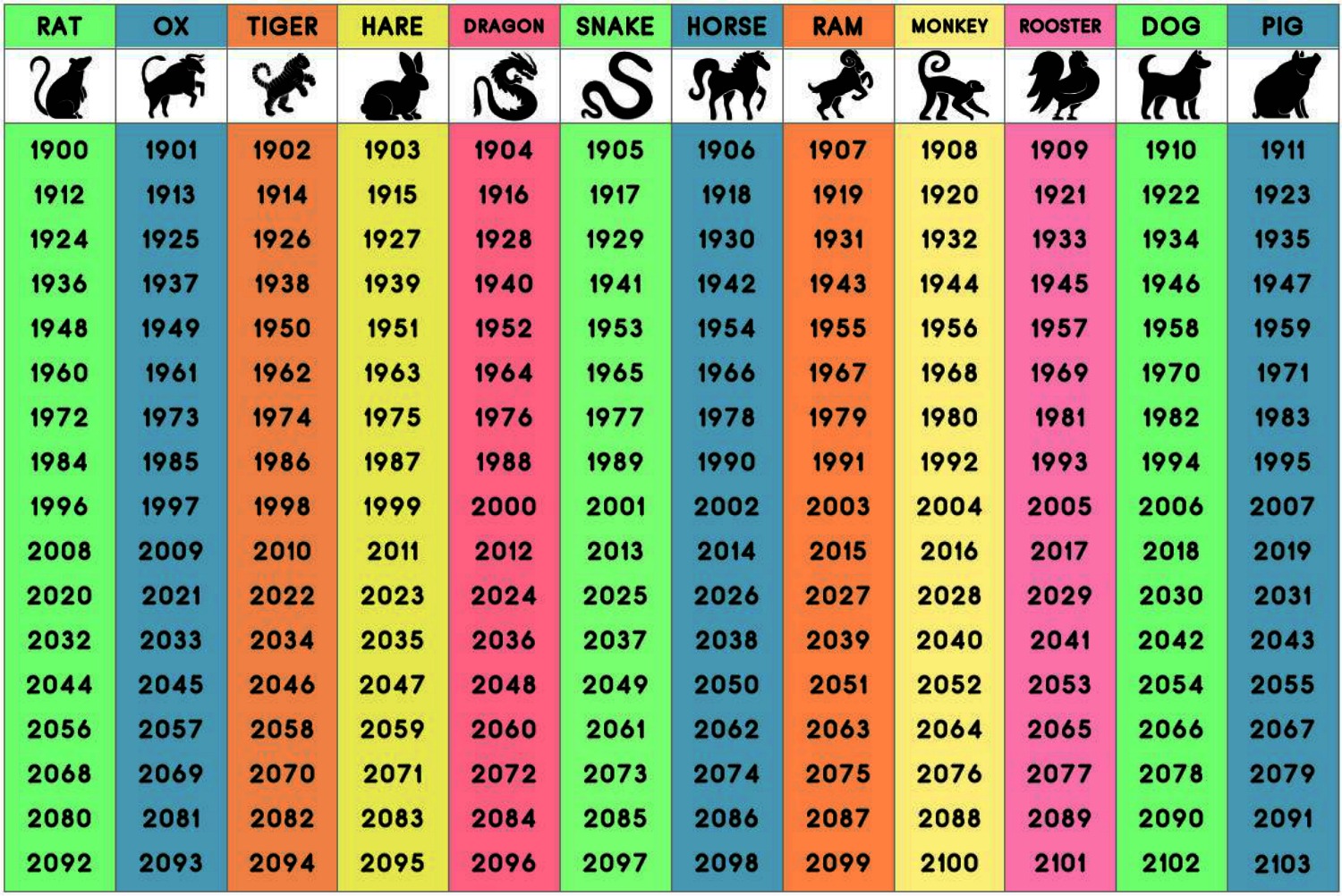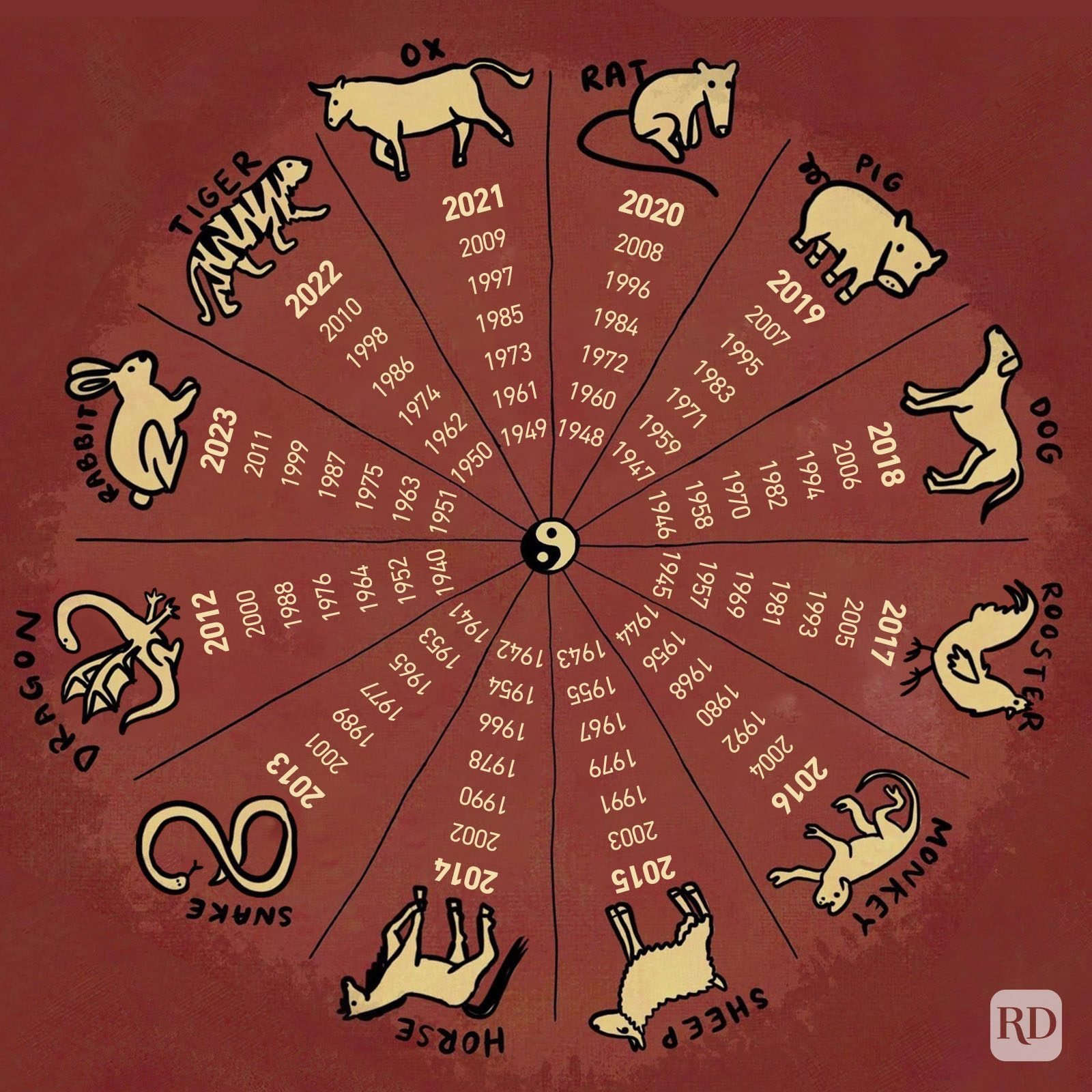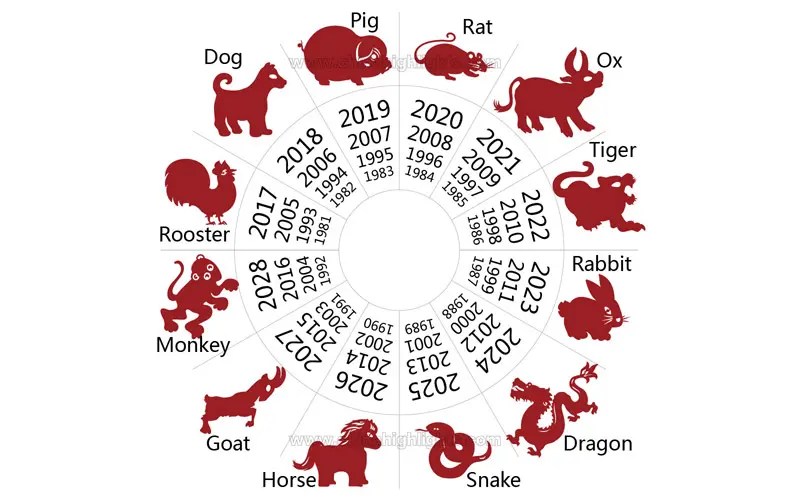What were the defining characteristics of the 2006 Chinese Zodiac year? A comprehensive look at the predictions, personality traits, and overall outlook for those born under that sign.
The Chinese zodiac, a cyclical system of 12 animal signs, assigns specific attributes to individuals born in particular years. The 2006 Chinese zodiac year corresponded to the Dog. This animal sign, with its associated elements and specific characteristics, is believed to influence personality traits and life events for those born under it.
The Dog year of 2006 is often characterized in Chinese astrology as a year emphasizing loyalty, honesty, and a strong sense of justice. Individuals born under this sign are often perceived as dependable and reliable, with an inherent desire for order and harmony. The year may also suggest a strong focus on personal relationships and community. Historical context can provide insights into how cultural beliefs about this specific year might have impacted societal expectations and individual choices. For example, societal values, political climates, and technological advancements during this period can be considered when interpreting its influence.
| Category | Description |
|---|---|
| Animal Sign | Dog |
| Element | (Requires information) |
| Date Range (Likely Needed) | (Requires information) |
To fully understand the 2006 Chinese zodiac year, further investigation into the specific cultural and societal trends of that period is needed. This can enhance interpretations of its significance. Articles exploring the 2006 global situation, cultural events, and major news stories will further enrich understanding. Further, exploration of the impact of the years animal sign on popular culture, literature, art, and music will provide additional context.
Chinese Horoscope Year 2006
The Chinese horoscope year 2006, marked by the Dog, held specific astrological implications. Understanding these aspects provides insights into interpretations of personality and events.
- Dog Year
- Personality Traits
- Life Events
- Cultural Context
- Societal Influences
- Astrological Predictions
The Dog year, 2006, focused on qualities often associated with the Dog, such as loyalty and honesty. Personality traits, like dependability, might be interpreted in light of this. The year's cultural context and societal influences potentially shaped by global events or technological advancements can be considered in conjunction with astrological predictions. For example, 2006's political climate might have impacted how societal expectations related to individuals born in that year. Examining how these various factors interacted provides a more nuanced understanding of the significance attached to the Chinese horoscope year 2006. Ultimately, the multifaceted nature of this astrological construct demands careful consideration of various perspectives and historical backgrounds.
1. Dog Year
The designation "Dog Year" within the Chinese zodiac system is a crucial component of the broader concept of "Chinese horoscope year 2006." The year 2006, corresponding to the Dog in the 12-year cycle, is assigned specific characteristics and traits associated with the Dog sign. This association is central to interpretations of the year's influence on individuals born during that period. Analysis of historical and cultural contexts reveals how these interpretations have been applied, potentially influencing perceptions of personality, compatibility, and life events.
The Dog sign, in Chinese astrology, is often associated with honesty, loyalty, and a strong sense of justice. Individuals born in the Dog Year of 2006 might be perceived as dependable and reliable. Understanding these traits can provide insights into the characteristics attributed to those born under the 2006 Chinese zodiac sign. However, this association should be approached with nuance. While such interpretations hold cultural significance, it's critical not to generalize or assume that all individuals born in 2006 possess the traits uniformly. The complex interplay of individual experiences, environment, and personal choices significantly shapes an individual's characteristics, potentially overshadowing the influence of the zodiac sign.
In summary, the "Dog Year" of 2006 is a significant element within the broader context of the Chinese horoscope. The connection lies in the specific astrological associations linked to the Dog sign, influencing how the year is interpreted culturally and potentially shaping perceptions of those born during that period. A nuanced understanding acknowledges the symbolic importance of these associations but emphasizes the complex interplay of individual and environmental factors shaping human characteristics. Any reliance on the horoscope for definitive predictions should be approached with a critical and reflective mind.
2. Personality Traits
The connection between personality traits and the Chinese horoscope year 2006, specifically associated with the Dog, is complex. While the horoscope offers interpretations of characteristics linked to the Dog sign, it's essential to understand these interpretations as cultural frameworks, not absolute determinisms. The Dog sign, in this context, suggests potential predispositions rather than definitive characterizations. These potential predispositions may include loyalty, honesty, and a strong sense of justice, traits often associated with individuals born under the Dog zodiac sign. However, these traits are not inherent but rather potentially influenced by social, familial, and personal experiences.
Analysis of individuals born in 2006 reveals a wide spectrum of personality traits. While some individuals might exhibit traits aligning with the Dog sign's attributes, others may not. This variation highlights the limitations of relying solely on the horoscope for definitive personality assessments. The horoscope year acts as a lens through which certain predispositions might be perceived, but the interplay of numerous other factors ultimately shapes the complexity of individual personalities. For instance, a dog-born individual raised in a supportive and nurturing environment may manifest traits aligning with the horoscope's predictions. Conversely, an individual with similar astrological placement but raised in a challenging environment might manifest different traits despite the astrological association.
In conclusion, the connection between personality traits and the Chinese horoscope year 2006 is nuanced. While cultural interpretations might suggest predispositions associated with the Dog sign, these interpretations should be viewed as potential frameworks rather than rigid determinants. The complexities of individual development, environmental influences, and personal choices significantly shape personality traits, making simplistic correlations with the horoscope potentially misleading. A more comprehensive understanding of individual personalities must consider the complex interplay of biological, psychological, and social factors beyond the confines of a single astrological sign.
3. Life Events
The connection between life events and the Chinese horoscope year 2006, specifically linked to the Dog, is indirect and complex. The horoscope itself does not dictate specific life events; rather, it offers a framework for interpreting potential predispositions and tendencies. While no direct causal link exists, cultural interpretations may associate certain life experiences with the Dog year, prompting individuals to perceive patterns or seek explanations within this framework. For example, a person born in 2006 might reflect on major life choices or significant events during a particular period and attempt to correlate them with the Dog year's perceived characteristics.
Examining life events through the lens of the horoscope year requires careful consideration of alternative explanations. Significant life changes, whether positive or negative, are often influenced by a multitude of factors, including personal choices, societal contexts, and chance occurrences. Attributing these events solely to the horoscope year risks oversimplification and potentially obscures deeper, more relevant factors influencing a person's experiences. For instance, career advancements or relationship challenges experienced by an individual born in 2006 might be better explained by factors like individual skills, market conditions, or personal decisions, rather than the horoscope. The Dog year could act as a backdrop for these events, but not as the primary cause.
In conclusion, the relationship between life events and the Chinese horoscope year 2006 is not a direct cause-and-effect relationship. The horoscope provides a cultural framework, and individuals might interpret events within this framework. However, attributing specific life events solely to the horoscope year risks oversimplification. Understanding the broader range of contributing factors is crucial for a comprehensive analysis of human experiences. The horoscope serves more as a symbolic backdrop against which individuals might interpret their personal journeys, rather than a determinant of their experiences. This nuanced perspective is crucial for avoiding misinterpretations and appreciating the complexity of human life events.
4. Cultural Context
The cultural context surrounding the Chinese horoscope year 2006, the Year of the Dog, significantly influences how individuals interpret and apply astrological predictions. Understanding these cultural nuances is essential to grasping the multifaceted nature of this symbolic system. The context shapes interpretations, expectations, and societal perceptions related to individuals born during this period.
- Societal Beliefs and Expectations
Cultural beliefs about the Dog sign, prevalent in Chinese society, influence societal expectations for individuals born under it. These expectations might include attributing certain personality traits, such as loyalty, honesty, and a strong sense of justice. These beliefs, however, are complex and not universally applied. Cultural factors such as regional variations in interpreting the zodiac signs contribute to variations in the application and interpretation of the horoscope's influence.
- Media Representation
Media portrayals, including literature, films, and popular culture, frequently reflect and reinforce cultural perceptions surrounding the Chinese zodiac. Media representations might showcase individuals born in the Year of the Dog embodying specific traits. These representations, while potentially influential, should be examined critically for their potential to create stereotypes or reinforce existing prejudices. For example, a particular film or novel might portray a successful businessperson born in the Dog year as inherently driven and diligent.
- Family and Community Influence
Family and community dynamics significantly shape individual experiences and interpretations of the horoscope. Within a family, the Dog year might be discussed as potentially influencing a child's future or as a factor in compatibility. The interpretation within a community might further shape these beliefs. Such traditions can influence the child's upbringing, potentially shaping behaviors and expectations based on interpretations of the zodiac sign. This family-centric lens influences how families engage with and understand their child's astrological placement.
- Historical Context
The historical context surrounding the year 2006, including major events, political climate, and cultural shifts, can influence how individuals perceive the astrological predictions. Socioeconomic conditions, technological advancements, and prominent figures all have the potential to shape the cultural interpretation of the horoscope in a given year. For example, 2006 might be viewed differently within the context of broader historical trends or regional differences.
In conclusion, the cultural context surrounding the Chinese horoscope year 2006 is multilayered and multifaceted. Understanding these cultural interpretations, encompassing societal beliefs, media representations, family dynamics, and historical perspectives, helps provide a more nuanced understanding of the cultural impact of the Year of the Dog on individuals and society in 2006. These factors, while not predictive, contribute to how individuals perceive and navigate life events within this cultural framework. This perspective reveals the importance of examining cultural nuances when interpreting astrological systems.
5. Societal Influences
Societal influences profoundly impact the perceived significance of the Chinese horoscope year 2006, the Year of the Dog. The year's characteristics, as interpreted through the zodiac sign, are not isolated; they are filtered and contextualized within prevailing societal norms, expectations, and trends. These influences are intertwined, shaping public perception and potentially affecting individual behaviors and interpretations.
Consider the political climate of 2006. Major international events, economic fluctuations, and sociocultural shifts all played a role in shaping the overall atmosphere. These factors might influence how individuals born in that year interpreted their zodiac sign. For example, if 2006 was marked by economic growth and optimism, those born under the Dog sign might have been viewed through a lens of optimism and perceived as naturally dependable in navigating a favorable environment. Conversely, if 2006 presented economic hardship or social upheaval, those born under the Dog might have been seen as working hard to maintain stability during a challenging period. Thus, the societal context profoundly colors the interpretation of the astrological sign, shaping associated expectations and, potentially, individual choices.
Understanding the connection between societal influences and the Chinese horoscope year 2006 offers valuable insights. It encourages recognizing the complex interplay of astrological symbolism and external realities. By acknowledging these influences, individuals can approach the concept of the Chinese zodiac not as a deterministic predictor but as a cultural lens through which people perceive and interpret their lives. This awareness is crucial to avoiding oversimplification and appreciating the full spectrum of factors shaping personal experiences and societal perceptions. The practical implication lies in recognizing the nuanced role of cultural context in shaping interpretations of both individual character and broader historical trends.
6. Astrological Predictions
Astrological predictions associated with the Chinese horoscope year 2006, the Year of the Dog, offer a framework for interpreting potential influences on individuals. These predictions, rooted in the cyclical system of the Chinese zodiac, do not dictate outcomes but instead present potential tendencies or predispositions. The Dog, within this system, is often associated with traits such as loyalty, honesty, and a strong work ethic. Consequently, predictions might touch on areas like career prospects, relationship dynamics, or personal challenges, suggesting possible tendencies aligned with these perceived characteristics. However, crucial to remember is that these predictions are symbolic interpretations, not definitive statements of destiny.
The practical significance of these predictions lies in their role as a cultural framework for understanding potential patterns and influences. Individuals might utilize these predictions to self-reflect, potentially identifying areas needing attention or strategies for personal development. However, it's equally vital to acknowledge the lack of empirical evidence supporting their deterministic nature. The predictions function as a tool for self-awareness, prompting reflection on potential tendencies rather than as concrete prophecies. For instance, the prediction that a Dog year might foster strong relationships can motivate individuals to nurture existing bonds or seek new connections. This, in turn, empowers individuals to actively engage with their lives rather than passively accepting predetermined outcomes.
In conclusion, astrological predictions associated with the Chinese horoscope year 2006, the Year of the Dog, offer a symbolic framework, encouraging self-reflection and potentially inspiring individuals to actively shape their experiences. While these predictions lack empirical support as definitive outcomes, they can serve as motivational tools and prompts for introspection. Recognizing their symbolic nature is crucial; these predictions should be considered as potentially insightful interpretations, not as immutable decrees. A comprehensive understanding of human experience demands considering a wide range of perspectives, including cultural interpretations, alongside empirical evidence and personal agency.
Frequently Asked Questions
This section addresses common inquiries regarding the Chinese horoscope year 2006, the Year of the Dog. The following questions and answers provide clarity and context, acknowledging the symbolic nature of astrological interpretations.
Question 1: What specific traits are associated with the Chinese zodiac sign Dog?
The Dog, in Chinese astrology, is often associated with honesty, loyalty, and a strong sense of justice. Individuals born under this sign might exhibit these traits or tendencies. However, these are potential predispositions, not definitive characterizations. Numerous factors influence an individual's personality.
Question 2: Does the Chinese horoscope predict specific life events for the year 2006?
The Chinese horoscope offers symbolic interpretations rather than precise predictions of life events. While individuals might interpret potential tendencies or predispositions, the horoscope does not determine specific outcomes. Numerous other factors influence life experiences.
Question 3: How does cultural context influence interpretations of the 2006 horoscope?
Societal expectations, media representations, and family dynamics significantly shape how individuals perceive the horoscope. Cultural variations in interpreting the zodiac further influence individual understanding and application of these interpretations. The horoscope is a cultural lens, not a universal predictor.
Question 4: Are the predictions about 2006's horoscope scientifically validated?
Astrological predictions, including those related to the 2006 Chinese horoscope, lack scientific validation. While interpretations hold cultural significance, these systems should not be considered scientifically accurate predictors of future events.
Question 5: How can individuals use information about the 2006 horoscope constructively?
The information surrounding the 2006 horoscope serves as a framework for self-reflection and potential insights into predispositions. Individuals might use these symbolic interpretations to better understand potential tendencies and approach life experiences with a mindful awareness of the cultural context surrounding these interpretations. The horoscope should not be the sole basis for decision-making but might serve as a motivational tool for self-awareness.
In summary, the Chinese horoscope year 2006, associated with the Dog, provides symbolic interpretations, not concrete predictions. A nuanced understanding requires appreciating the cultural context and recognizing that personal experiences are shaped by various influences, not solely astrological predictions.
Moving forward, a critical and thoughtful approach to understanding various cultural belief systems is advisable.
Conclusion
The exploration of the Chinese horoscope year 2006, the Year of the Dog, reveals a complex interplay of cultural interpretation and individual experience. The astrological system offers a framework for understanding potential predispositions, but these interpretations are deeply embedded within societal beliefs and historical contexts. Analysis reveals that while the Dog year might evoke specific traitslike loyalty and honestythese are not absolute determinants. Numerous factors influence individual personality and life events, including personal choices, societal pressures, and chance encounters. The year's cultural context, encompassing societal norms, media portrayals, and family dynamics, shapes how individuals interpret and apply astrological predictions. Ultimately, the year serves as a symbolic backdrop against which individuals might perceive their life journeys but does not dictate their trajectory. The article emphasizes the importance of understanding the symbolic and cultural underpinnings of these interpretations rather than accepting them as rigid prophecies.
Considering the multifaceted nature of human experience, relying solely on astrological predictions for understanding life's complexities can be limiting. A comprehensive perspective necessitates acknowledging the value of symbolic interpretations within their cultural contexts, while also emphasizing the role of individual agency, personal choices, and the multitude of life experiences that shape individual destinies. The exploration of the Chinese horoscope year 2006 encourages a nuanced understanding of cultural belief systems and the importance of critical evaluation when interpreting such frameworks. Further exploration of similar astrological concepts can benefit from similar holistic approaches, prioritizing cultural context and acknowledging the limitations of deterministic predictions.
You Might Also Like
Kamala Harris Bar Exam: Did She Pass?The Lion King: Epic Adventures Await!
Best Electric Shower Cleaner Reviews & Tips
Dubai Chocolate: A Sweet Treat Unveiled
Jack Black Age: 2024 Update & Facts
Article Recommendations
- Drake Hogestyn Actor More
- Zach Branch Latest News Updates
- New Orleans Offensive Coordinator Top Candidates Recent Hires


